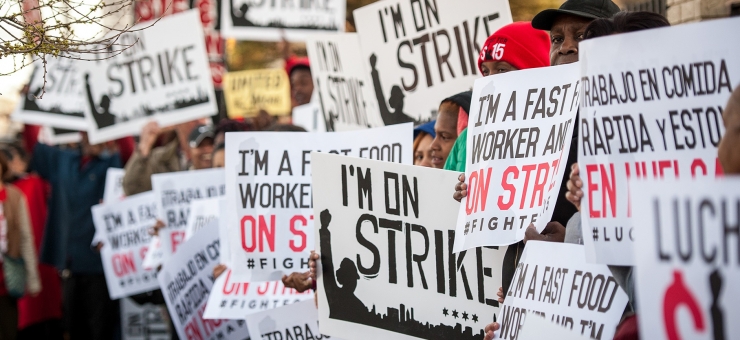News
Working people unite for largest mobilisation in modern U.S. history

Working people are celebrating today after the American-led Fight for 15 campaign grew into one of the largest protests by low-wage workers in modern history.
Across America, and in cities around the world, tens of thousands took to the streets in strikes and protests to demand a living wage and the right to join a union without retaliation.
From Tokyo to Auckland, Paris to Sao Paulo, Toronto to Milan and Chicago to Casablanca, protestors were out in force in 40 countries and over 100 cities.
“This hugely successful international action spearheaded by the IUF sends a message not only to U.S. employers but all multinational businesses – workers deserve a living wage and the right to join a union without retaliation and we won’t rest until this happens,” UNI Global Union General Secretary Philip Jennings said.
“What started in 2012 when a hundred fast food staff walked off their jobs in New York City has swollen into a truly global social justice movement that now counts service sector workers such as security guards, retail workers and care workers amongst its ranks.”
In the United States, Boston kicked of a wave of actions with several hundred marching through the city. For the first time, students joined in huge numbers at some 200 university campuses, many standing side by side with university staff.
In Chicago, Brinks armoured car drivers spontaneously walked off the job in a strong show of support. In New York a large contingent of striking McDonald's employees had the backing of union construction workers.
Ahead of the protests, a study funded by the SEIU found working families rely on $153 billion in public assistance a year as a result of their low wages. American wage growth remains weak and the majority of income gains float directly to the top 1% of earners. In 2010, the wealthiest 1% of Americans held a staggering 35% of all wealth whilst the bottom 90% held just 23%.
The easiest and most effective way to better distribute this wealth is through higher wages, unions say. Across the world, there is a growing consensus that a revival of labour market institutions and collective bargaining is the only way that decent work and fair pay can be achieved. Putting money back into the pockets of working people will increase demand and purchasing power - good for workers, good for business. That is why the moves from McDonald’s and Walmart, although small, could be so important if other companies follow suit.
The task of righting America’s wage problems remains huge. More than half of all workers continue to earn less than $15 per hour (CHF14.5). Almost a quarter of all jobs in America pay wages below the poverty line for a family of four whilst four million Americans are entitled to food stamps.
McDonald's says the companies does not control the employment decisions at franchised restaurants. The SEIU and its partners are working to change that and hold McDonald's responsible for the labour conditions at its franchised restaurants.

